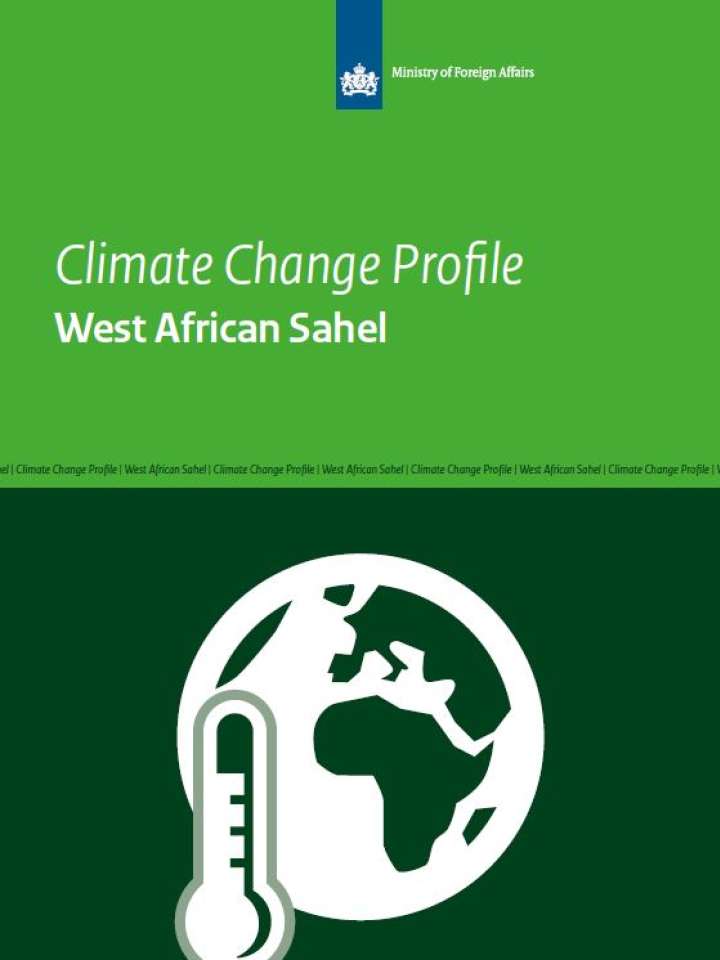Climate change profile: West African Sahel
This climate change profile is designed to help integrate climate actions into development activities. It complements the publication ‘Climate-smart = Future-Proof! – Guidelines for Integrating climate-smart actions into development policies and activities’ and provides answers to some of the questions that are raised in the step-by-step approach in these guidelines. The current and expected effects of climate change differ locally, nationally and regionally. The impacts of climate change effects on livelihoods, food and water security, ecosystems, infrastructure etc. differ per country and region as well as community and individual, with gender a particularly important vulnerability factor.
This climate change profile provides a brief analysis of climate change vulnerability and adaptive capacity in the countries in the West African Sahel: Burkina Faso, Chad, Mali, Mauritania, Niger, and Nigeria. This region is one of the poorest and most environmentally degraded regions in the world. Drought and high inter-annual climate variability are already being felt in the region in the form of decreased agricultural yields, loss of pastureland, and the shrinking of important water bodies. It is one of the most vulnerable regions to climate change, not only because of rising temperatures and decreasing and erratic rainfall, but also because of its poverty, food insecurity, rapid population growth, gender inequality, political instability and conflict.
Explore further

